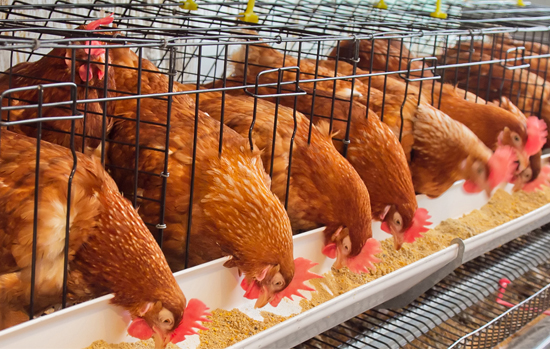What do you need to pay attention to when raising chicken?
- font size decrease font size increase font size
Now more and more people choose to raise chickens in poultry farming equipment, and think that raising chickens has great development, but what do you need to pay attention to when raising chickens?
First, blind introduction. The figure is cheap and ignores the quality of the chicks or simply pursues fashion. It does not consider the natural conditions of the region and its own breeding conditions, blindly pursuing new varieties and varieties. Some breed chickens in different batches, and some even buy chicks from infected areas, which brings difficulties to feeding management, and creates conditions for cross-infection of pathogens and induction of metabolic diseases.
Second, the addition of materials to work. The feed powder contains more nutrients such as amino acids, multivitamins and trace elements, while chickens have the habit of eating large grains. If the feed is too much, the chickens eat a large amount of large feed, resulting in an imbalance of nutrient intake. It affects the growth and production of chickens.
Third, suddenly refueling. When the feed needs to be replaced due to factors such as the growth stage of the chicken, the market price, etc., the feed is suddenly changed without a transition, which may cause the chicken's stress reaction, and some may even cause death.

Fourth, blind medication. Some chicken farmers and chicken farms do not add blind drugs when they are sick. Because the drugs are not symptomatic, they not only delay the disease, but also cause waste and increase the cost of raising chickens.
Fifth. When there are individual diseased chickens in the flock, they only pay attention to treatment, neglect isolation and prevention, and create conditions for the spread and epidemic of the disease.
Sixth, scorn disinfection. Individual chicken farms and chicken farmers cannot correctly understand the importance of disinfection, and only one-sided pursuit of reducing the cost of breeding, ignoring the disinfection work, leaving hidden dangers to the outbreak of the disease.
Seven, neglect to eliminate. Excessively value the survival rate. On the one hand, the weak chickens in the reserve flocks and the chickens with disabilities are not allowed to be eliminated. On the other hand, the old-age low-yielding hens are neglected, and the ratio of input to output is not paid attention to, which affects the overall economic benefits.
